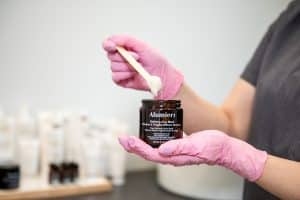
Is Laser Hair Removal Worth the Investment?
Is Laser Hair Removal Worth the Investment? Delving into the Value of Laser Hair Removal: Assessing Treatment Worth Laser hair removal has become a popular
blog post
In the pursuit of a more sculpted physique, non-invasive procedures like cryolipolysis, or fat freezing, have gained popularity as alternatives to traditional surgical methods of fat reduction. However, while fat freezing offers numerous benefits for many individuals, it’s essential to recognize that not everyone is a suitable candidate for this procedure. Understanding who may not be suitable for fat freezing is crucial for managing expectations and ensuring safe and effective outcomes. Let’s explore the factors that may render someone ineligible for cryolipolysis.
Before undergoing cryolipolysis or any cosmetic procedure, it’s crucial to undergo a thorough consultation and evaluation with a qualified healthcare provider or licensed practitioner. During this process, the practitioner can assess your medical history, skin condition, and treatment goals to determine whether fat freezing is suitable for you.
While cryolipolysis offers many benefits for targeted fat reduction, it’s essential to recognise that not everyone is a suitable candidate for this procedure. By understanding the factors that may preclude someone from undergoing fat freezing, individuals can make informed decisions about their treatment options and pursue alternative approaches to achieving their aesthetic goals. Remember, safety and efficacy should always be the top priorities when considering any cosmetic procedure.
Book a free consultation today.

Is Laser Hair Removal Worth the Investment? Delving into the Value of Laser Hair Removal: Assessing Treatment Worth Laser hair removal has become a popular

Is A Chemical Peel Worth It? Unlocking the Benefits of Chemical Peels: Evaluating Treatment Worth Chemical peels have long been a staple in skincare regimens,

What is the Success Rate of Microneedling? Exploring Microneedling Success: Understanding Treatment Efficacy Microneedling has garnered attention as a promising skincare treatment, praised for its

Is Microneedling Actually Good For Your Skin? Unveiling the Benefits of Microneedling: A Closer Look at Skincare Advantages Microneedling has emerged as a popular skincare